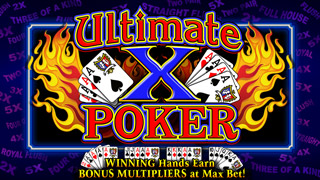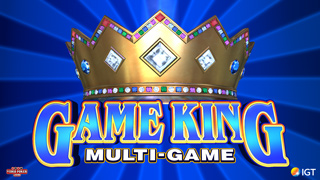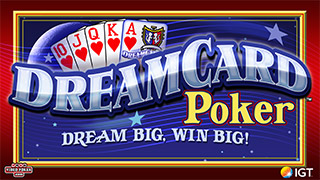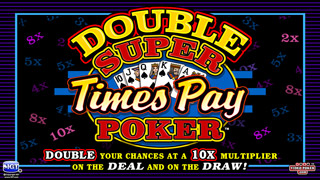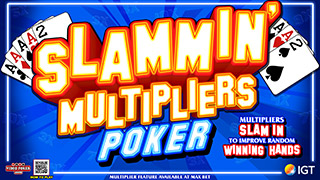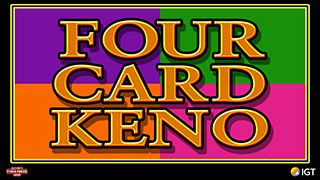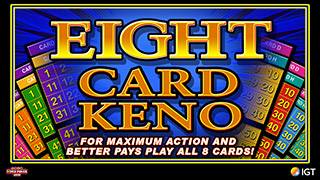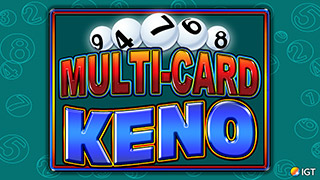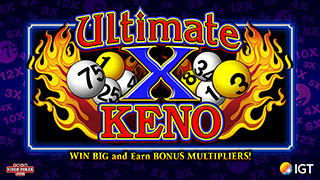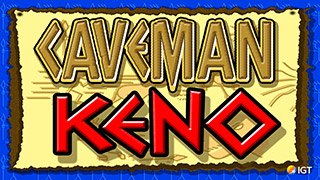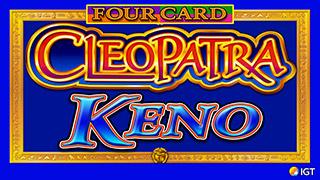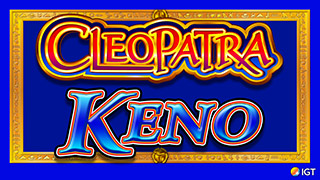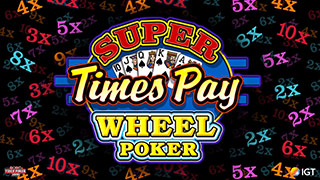A hand like 7s7d7c3hKc (in a regulated gambling jurisdiction where each card has the same likelihood of being drawn) in QQ DDB will be played differently than standard DDB. The hold in QQ DDB is 7s7d7c3h versus 7s7d7c in regular DDB. So you will get more quick quads in QQDDB than in DDB where you are tossing out possible quick quad draws (since you aren't getting paid for quick quads in DDB). Same goes for a hand like 7s7d3h4cKc: you are going to toss only the Kc in QQDDB and you are going to hold only the pair of sevens in standard DDB. A hand like 7c7d7h3h4c, which is a pat hand quad in QQ, but where the the three and four are tossed in standard VP is rare enough not to affect the percentages of QQ in both types of VP, but the other hands are common enough to effect the 20% differential.
"IF YOU BELIEVE IT'S RIGGED, WHY PLAY?"
-
asteroid
- Senior Member
- Posts: 191
- Joined: Wed Dec 29, 2010 10:36 am
Re: "IF YOU BELIEVE IT'S RIGGED, WHY PLAY?"
-
OTABILL
- Video Poker Master
- Posts: 3026
- Joined: Wed Dec 02, 2009 5:22 pm
Not true at least in Arizona. The tribal-state compact "establishes technical standards for the gaming machines, authorizes the State to inspect casinos, requires background investigations and licensing of casino employees and vendor companies, and requires tribes to contribute 1 to 8 percent of their net gaming revenues to state and local governments." See https://gaming.az.gov/law-compacts/trib ... e-compactsasteroid wrote: ↑Thu Sep 12, 2019 6:45 amIndian casinos are not subject to gambling regulators - I mentioned this explicitly in a previous post. I also mentioned it would be safer to play VP in a jurisdiction with a gaming control board like Nevada. In any case the process is random.onemoretry wrote: ↑Wed Sep 11, 2019 12:23 pmIn my somewhat narrow view, random means random, and there can be no "excepts".
To be truly random, on the deal, and on the draw, and at each step, each and every eligible card must have an equal chance of being picked. Anything less than that is not truly random, and as near as I can understand, would not meet the requirements of most, if not all, gambling regulators.
-
asteroid
- Senior Member
- Posts: 191
- Joined: Wed Dec 29, 2010 10:36 am
There is nothing illegal about class III or class II VLTs (centrally served games). The state of Arizona will allow it legally.OTABILL wrote: ↑Thu Sep 12, 2019 10:50 amNot true at least in Arizona. The tribal-state compact "establishes technical standards for the gaming machines, authorizes the State to inspect casinos, requires background investigations and licensing of casino employees and vendor companies, and requires tribes to contribute 1 to 8 percent of their net gaming revenues to state and local governments." See https://gaming.az.gov/law-compacts/trib ... e-compactsasteroid wrote: ↑Thu Sep 12, 2019 6:45 amIndian casinos are not subject to gambling regulators - I mentioned this explicitly in a previous post. I also mentioned it would be safer to play VP in a jurisdiction with a gaming control board like Nevada. In any case the process is random.onemoretry wrote: ↑Wed Sep 11, 2019 12:23 pmIn my somewhat narrow view, random means random, and there can be no "excepts".
To be truly random, on the deal, and on the draw, and at each step, each and every eligible card must have an equal chance of being picked. Anything less than that is not truly random, and as near as I can understand, would not meet the requirements of most, if not all, gambling regulators.
-
Tedlark
- Video Poker Master
- Posts: 8833
- Joined: Mon Oct 02, 2006 12:29 am
asteroid wrote: ↑Thu Sep 12, 2019 6:45 amIndian casinos are not subject to gambling regulators - I mentioned this explicitly in a previous post. I also mentioned it would be safer to play VP in a jurisdiction with a gaming control board like Nevada. In any case the process is random.onemoretry wrote: ↑Wed Sep 11, 2019 12:23 pmIn my somewhat narrow view, random means random, and there can be no "excepts".
To be truly random, on the deal, and on the draw, and at each step, each and every eligible card must have an equal chance of being picked. Anything less than that is not truly random, and as near as I can understand, would not meet the requirements of most, if not all, gambling regulators.
Actually you are not entirely correct. Native American casinos that have compacts with the state the casino is located in are ABSOLUTELY subject to gaming regulations. Take, for instance, the newest Four Winds Casino in South Bend, IN: they have no compact with the State of Indiana and they therefore only have VLT gaming devices in this particular casino.
While I'm on my soapbaox I will also add this: that link with the list of casinos across the country does not list the THOUSANDS of video gaming devices located in bars, restaurants, and truck stops across the entire State of Illinois yet the lest was put out AFTER these became legal.
-
asteroid
- Senior Member
- Posts: 191
- Joined: Wed Dec 29, 2010 10:36 am
When an Indian casino has a compact, they can also include VLT (centrally served) devices in addition to their class III devices. They may do this when they wish to have more devices than the compact dictates for class III devices they are allowed to have. Furthermore, their class III devices can be centrally served.Tedlark wrote: ↑Thu Sep 12, 2019 2:23 pmActually you are not entirely correct. Native American casinos that have compacts with the state the casino is located in are ABSOLUTELY subject to gaming regulations. Take, for instance, the newest Four Winds Casino in South Bend, IN: they have no compact with the State of Indiana and they therefore only have VLT gaming devices in this particular casino.
-
Tedlark
- Video Poker Master
- Posts: 8833
- Joined: Mon Oct 02, 2006 12:29 am
Furthermore; I was responding to your INACCURATE statement that "Indian Casinos" are not subject to gambling regulators.
My post was made to try and stop readers who may have been mislead by your INACCURATE statement.
My post was made to try and stop readers who may have been mislead by your INACCURATE statement.
-
asteroid
- Senior Member
- Posts: 191
- Joined: Wed Dec 29, 2010 10:36 am
Ted is THIS STATEMENT INACCURATE ?:
When an Indian casino has a compact, they can also include VLT (centrally served) devices in addition to their class III devices. They may do this when they wish to have more devices than the compact dictates for class III devices they are allowed to have. Furthermore, their class III devices can be centrally served.
THANKS TED
-
Eduardo
- Video Poker Master
- Posts: 2967
- Joined: Thu Aug 31, 2006 7:19 pm
I think you are misinterpreting what "centrally served" means.
I believe a class 3 game is going to operate the same whether it is "centrally served" or not. Operators may be able to push a different game to the box from a server, or manage their pay tables (which are visible to the player) without opening the box, but once the game is there, it will play exactly the same as any other. Otherwise it would not be class 3 any more.
They cannot manipulate the selection of cards or pull win results from a pool (server or otherwise) if they are class 3. I think you could only see that on class 2 slots or on VLT games that should be clearly marked as Bingo type games and are noticeably different to the player.
Class 3 games found in vegas and most major gambling cities in the US must select every single card at random. Even if the game runs on technology that involves a server.
I believe a class 3 game is going to operate the same whether it is "centrally served" or not. Operators may be able to push a different game to the box from a server, or manage their pay tables (which are visible to the player) without opening the box, but once the game is there, it will play exactly the same as any other. Otherwise it would not be class 3 any more.
They cannot manipulate the selection of cards or pull win results from a pool (server or otherwise) if they are class 3. I think you could only see that on class 2 slots or on VLT games that should be clearly marked as Bingo type games and are noticeably different to the player.
Class 3 games found in vegas and most major gambling cities in the US must select every single card at random. Even if the game runs on technology that involves a server.
Last edited by Eduardo on Fri Sep 13, 2019 9:16 am, edited 1 time in total.
-
asteroid
- Senior Member
- Posts: 191
- Joined: Wed Dec 29, 2010 10:36 am
Thanks Eduardo, I appreciate your informative response and I respect your opinion. I believe when the Class III games are pushed from a central server that they play differently than those Class III games that are not (local chip). This is based on VP experience in Nevada versus Indian casinos outside of Nevada. If others believe differently that's fine. Since I have access to non-server based Class III video poker, I see no harm in playing these games exclusively. Others can do as they wish obviously.Eduardo wrote: ↑Fri Sep 13, 2019 9:08 amI think you are misinterpreting what "centrally served" means.
I believe a class 3 game is going to operate the same whether it is "centrally served" or not. Operators may be able to push a different game to the box from a server, or manage their pay tables (which are visible to the player) without opening the box, but once the game is there, it will play exactly the same as any other. Otherwise it would not be class 3 any more.
-
Eduardo
- Video Poker Master
- Posts: 2967
- Joined: Thu Aug 31, 2006 7:19 pm
No harm in sticking to the old ones for sure. I like them myself. But they will probably get fewer and fewer as the machines age I am guessing and casinos update their technology and displays.



